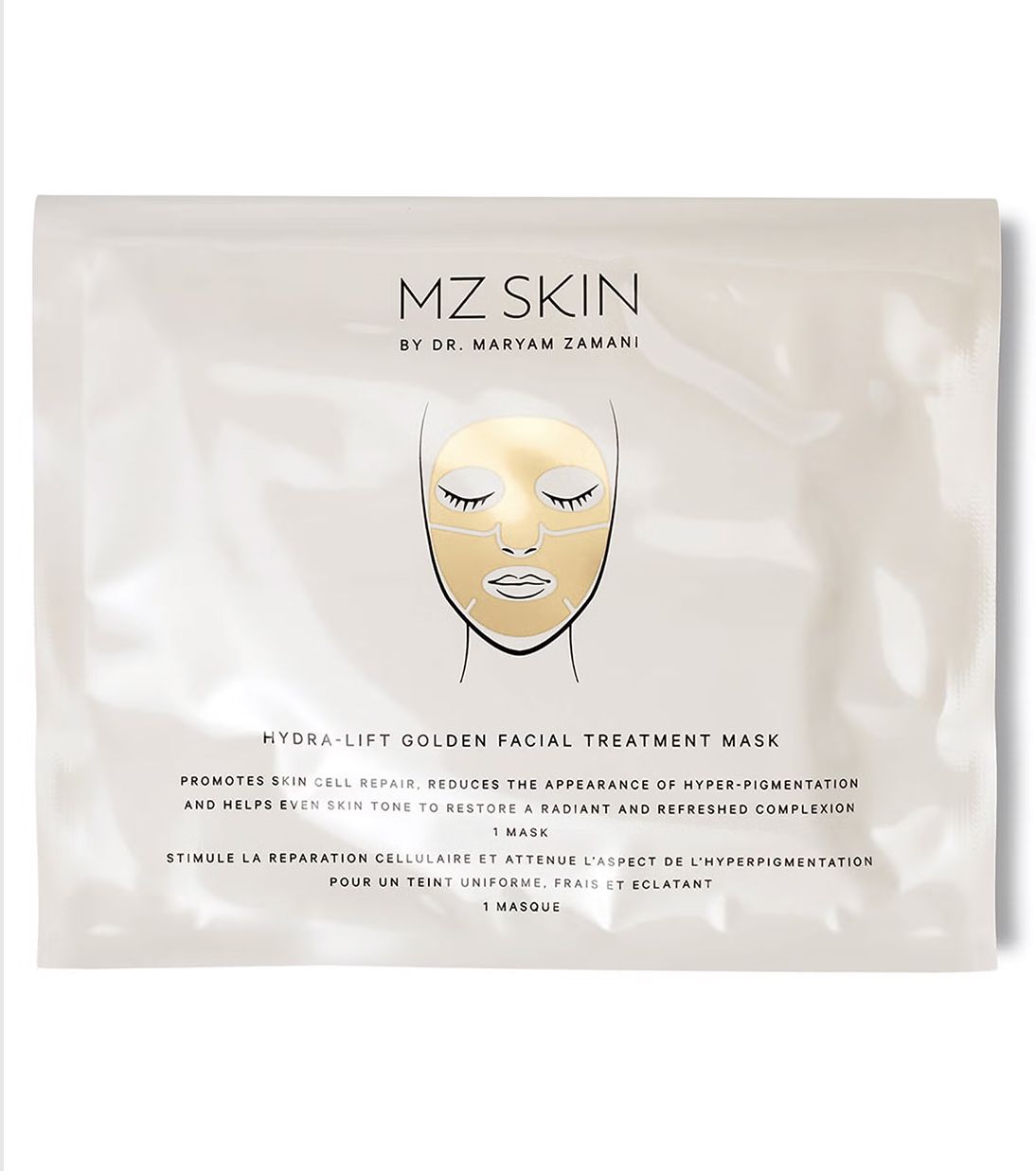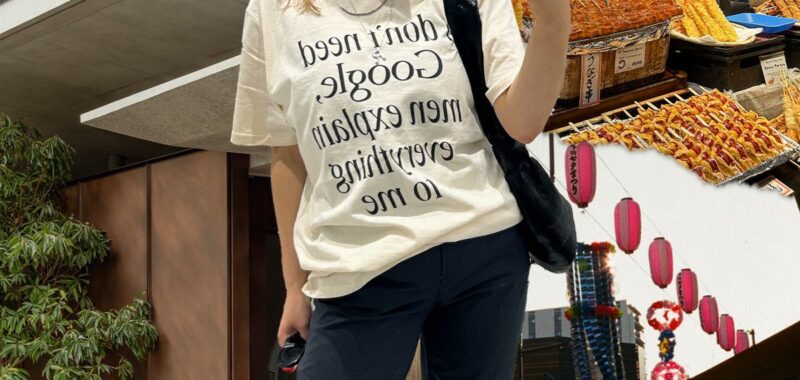If you have a taste for travel, a trip to Japan at some point in your life is a must. Like many, I put Tokyo top of my travel bucket list after the first time I watched Lost in Translation. And as cliché as it sounds, living out my Sofia Coppola film fantasy really didn’t disappoint, Tokyo is if anything more magical than any film or book can try to depict. Home to the weird and the very wonderful, it’s a destination full of intriguing dichotomies—loud yet so quiet, progressive but also traditional. As a city, although you can compare fragments of its architecture, religion, history and attractions to other places, those in Asia and beyond, it really does run with its own vibe.
Whilst many make the journey for the country’s beauty, others for the anime and gaming culture, there was one thing that attracted my husband and I more than anything: the shopping. I feel like we need to discuss this part immediately. The shopping in Tokyo really is everything they say it is, and more. Vintage, streetwear, luxury, independent designers, DIY craft—anything and everything is exceptional in Tokyo, so if you’re a person who appreciates great design, there’s no question that you’ll love what it has to offer.
I’ve been lucky enough to visit this vibrant city not only once, but twice this year, for my honeymoon and also as a guest of one of my favourite footwear and accessory brands Charles & Keith, to celebrate the opening of their Shibuya store earlier this year. It was here that I got my first taste for this destination and its bountiful shopping scene.
Naturally as a fashion editor, I’m drawn to observing people’s style and fascinated by how they way people dress alters from country to country, one subculture from another. It will come as no surprise that I’ve never witnessed such a well-dressed body of people as the Japanese. As a nation they have somewhat of a uniform—a very tidy, very chic and utilitarian approach to dressing that consist largely of chore jackets, tailored trousers, cargo pants (think anything you find in a Uniqlo store, basically). Aside from this largely consistent sense of style, there’s definitely a more experimental scene, be it with the Harajuku girls or its cool, cult youth that source vintage pieces or shop from the various eclectic streetwear brands and denim labels.
Of course, this place is so much more than its shopping. It has bags of culture and its cuisine to show off, too. Be it where to stay (in my opinion it’ll always and forever be Trunk Hotel), where to eat and, obviously, what to pack, this is my definitive fashion insider’s guide to Tokyo.
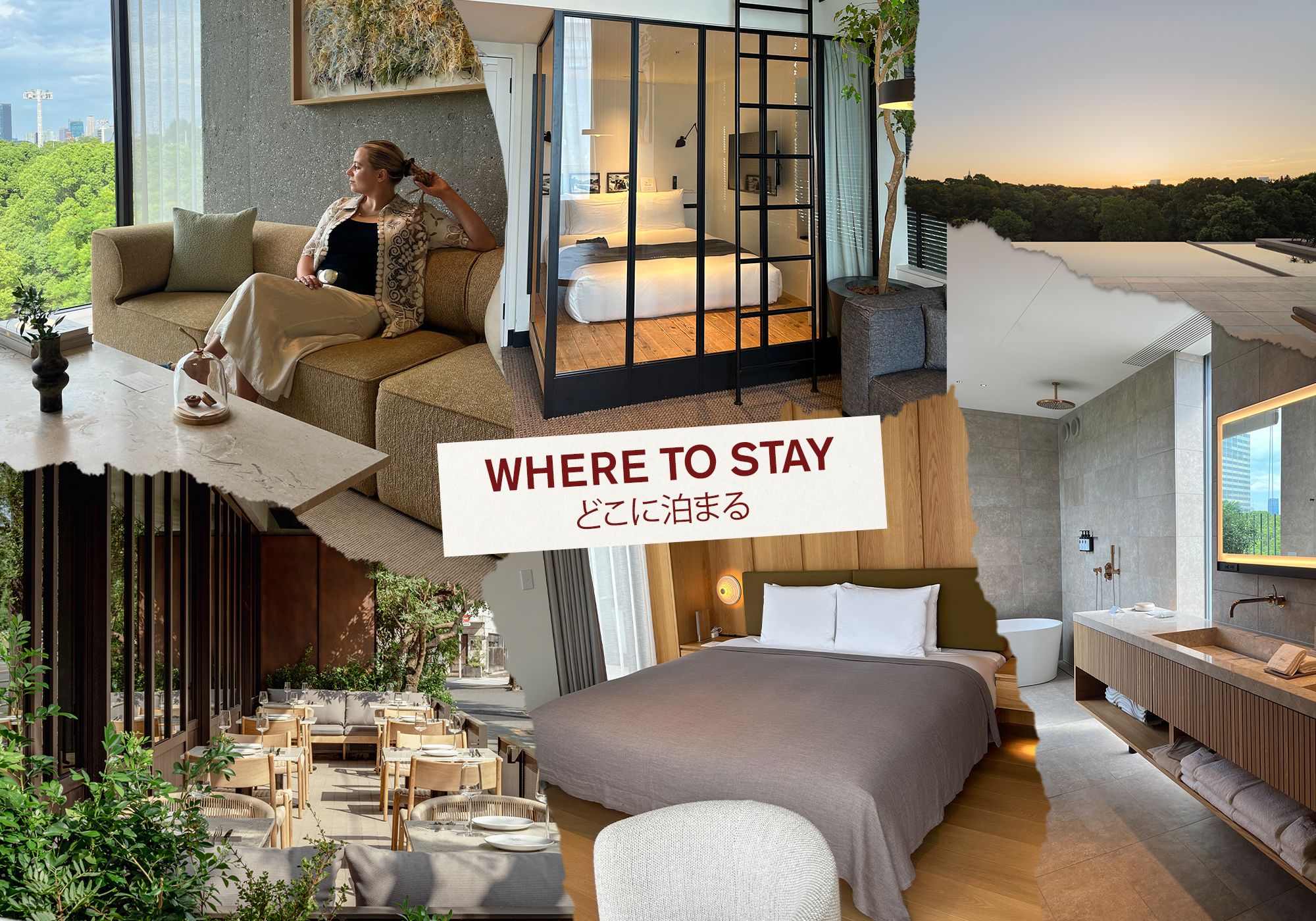
Unlike other major cities, Tokyo doesn’t have a plethora of boutique hotels or Airbnb options. This doesn’t really matter, however, because it does have the Trunk Hotel, one of the best hotels I’ve ever stayed in (seriously!). Trunk has two main locations, Cat Street in the heart of Harajuku and Yoyogi Park which is slightly further outside of Shibuya and quite literally next door to one of the city’s finest green spaces, Yoyogi Park. Considering they’re sister hotels, they offer two very different experiences. Cat Street, Trunk Hotel’s first opening, is what you’d expect to find from a hip boutique hotel. A busy lobby bar full from morning till night with young local and international creative types (there’s also a DJ that regularly plays here, adding to the vibe), it has a stylish interior design with a few unique services and touches that make it feel worth your stay. The suite we stayed in had a projector perfect for movie nights, a record player (with an extremely decent record collection, may I add) and bikes parked outside the front which you can rent.
Yoyogi Park on the other hand is more low-key, inviting those that want more zen than party vibes. It’s actually my favourite of the two. With a rooftop pool and bar that provides spectacular views of the park and cityscape, this hotel has been designed thoughtfully to ensure your stay is as stylish as it is serviced. The rooms come with flip-flops and pyjamas, and swimsuits are available to borrow. The supplied skincare is a treat, and the welcome snack sourced from a local bakery is a lovely (and delicious) touch. Even the hotel’s scent is so good I left the country with a suitcase full of its room sprays. I must also mention the interior design, which will no doubt be an inspiration for anyone who stays. Curated with a minimalist aesthetic—with exposed concrete, wood panelling and stone finishes—it’s moody, sexy and feels like Japanese modern design at its finest. My tip? I actually have two—if you’re tired from a long flight of walking, be sure to order Trunk Yoyogi Park’s pizza to your room, it’s 10/10. My second recommendation, if you’re there to celebrate something special (like your Honeymoon or a birthday), then book the penthouse suite—trust me, you won’t regret it.
Trunk Cat Street: 5 Chome-31 Jingumae, Shibuya City, Tokyo 150-0001
Trunk Yoyogi Park: 1-15-2 Tomigaya, Shibuya, Tokyo 151-0063
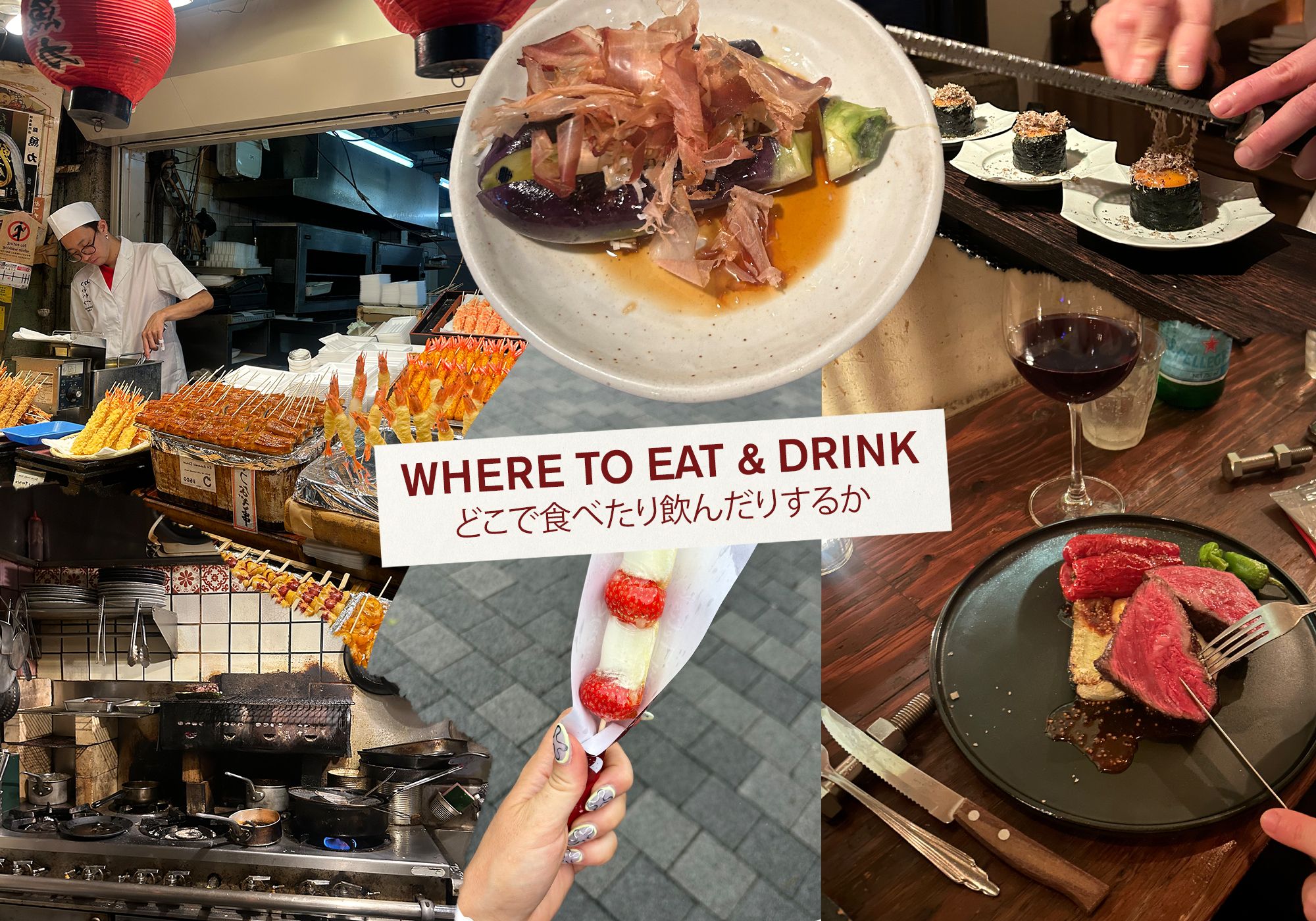
Anthony Bourdain famously once said that if he had to eat only in one city for the rest of his life, Tokyo would be it. I would have to agree. Because not only does the Japanese cuisine have so much to offer—sushi, ramen, gyozas, yakitori, sashimi, udon, poke bowls, wagyu steak, tempura… honestly, the list is endless—but for their high calibre fusion food. Who’d have thought the best French food I’d ever have would be not in Paris but Tokyo?! What I also noticed is that whilst you obviously can pay for fine dining in Tokyo, some of the most flavourful food we ate was from much more low-key establishments known as izakayas.
You haven’t experienced Japanese cuisine until you have experienced the Japanese izakaya. Where England has pubs and Paris has bistros, Tokyo has izakayas; small, informal and usually cosy restaurants with dimmed lighting that often have at-the-bar seating or booth tables. Izakayas may specialise in different traditional Japanese dishes, or may offer a varied menu with a bit of everything. Some are quiet and traditional and offer walk-ins only, some may even only have a Japanese menu, but others are a little more atmospheric. Eating lunch and/or dinner in a few izakayas whilst in Japan is a must.
Many tourists seek out Ichiban. Open 24/7, it’s a ramen response to eat-in fast food, with individual booths and machine-order menu that’s dirt cheap and often has a queue often around the block. Is it an experience worth having? Yes! Is it good ramen? Sure, but you can definitely easily find better and not have to queue with a bunch of other out-of-towners, so don’t feel like you’re missing out if you don’t make it.
Unmissable Restaurants:
Bellwood: This is actually a speakeasy bar that offers one of the most talked about culinary experiences in a small hidden sushi corner out the back. I say “small”, it seats 4 people, on one table. With a menu curated and executed by the young (and already prolific) female chef Ayaka Terai, that serves 12 pieces of nigiri inspired by different cuisines around the world. Book in advance, and be sure to have a cocktail at the bar after.
Narukiyo: A classic spot in Tokyo for locals and those ‘in the know.’ Here we had a blast joking around and drinking sake with its extremely charismatic chef. If you don’t speak Japanese, request ‘Omakase’ which literally translates to ‘I’ll leave it to you’—this is your best bet if you want to try the most popular dishes on the menu.
Bars/cafes:
Fuglan (both in the day for coffee and at night for cocktails), MoreThan Bakery, Inc, Bar Nakagawa, Studio Mule, Bloody Angle, Lovenet (for the wildest karaoke rooms in the city).
Others I highly recommend:
Pignon, Kitade Tacos, Levain Bakery, Studio Mule wine bar, Totorou, Riverside Club, Kushiwakamaru and Ryan (this is supposedly Sofia Coppola’s favourite Soba restaurant in Japan) and Sowado. It goes without saying, several trips to 7Eleven is a must, and I also suggest the Daiwa supermarket for its famous fruit sandwiches.
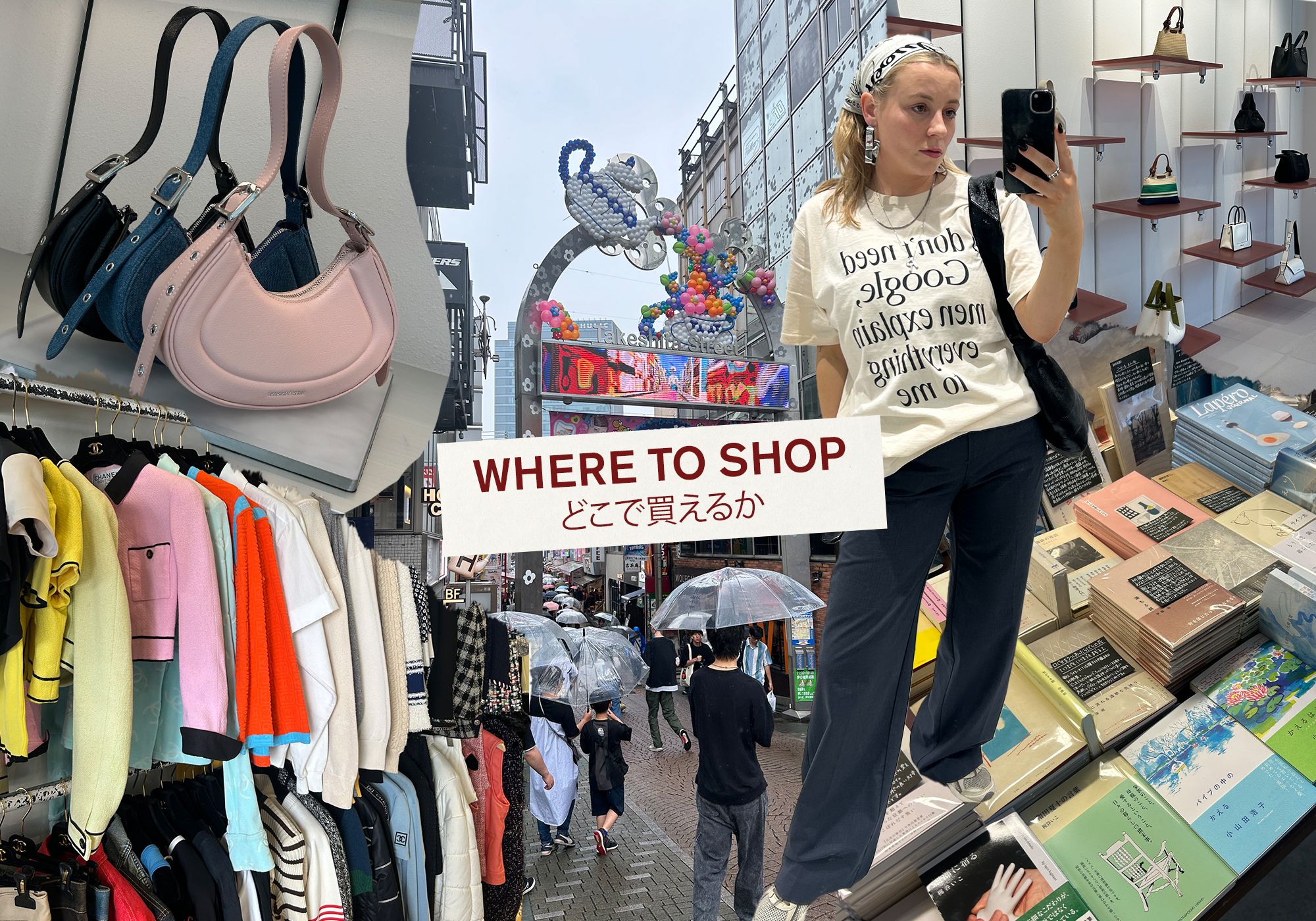
There’s excellent shopping all over this metropolis of a city, but the best way to tackle it is to conquer it in areas. One can spend days rummaging through the vintage, luxury boutiques and concept stores in Harajuku and Shibuya, but be sure to venture out as there’s so much more to discover, each neighbourhood with its own distinct vibe. These are the ones I recommend you don’t miss, by area:
Shibuya:
Most come to Shibuya for Scramble Crossing, one of the city’s most-visited tourist destinations. You could think of it as the Times Square of Tokyo, but even more of a sensory overload. Don’t miss it, and whilst you’re here be sure to check out the following:
Komehyo (I think the best store for secondhand luxury—let’s just say I spent a fortune on Jil Sander and Margiela dresses here), Kith, Mega Don Quiote (IYKYK, and if you don’t, just trust me, this is unmissable). Charles & Keith (obviously), D47 Museum, Mandarake (for anime, mange collectibles), Postalco (stationery heaven), Shibuya 109, Studious Jinnan (stocks Japanese brands only, so a must!), Tower Records, Laila Tokio.
Harajuku:
Most that come to Harajuku head to the very busy and bustling Takeshita Street and Omotesando (a tree-lined avenue great for designer stores), but I suggest heading more towards the Jingūmae district where you’ll discover a multitude of vintage boutiques and streetwear stores, as well as international brands (like adidas, On Running etc).
For vintage, make time for Ragtag (there’s many of this designer vintage store across the city, but this one is one of the best), Flamingo, BerBerJin, Qoo. Gr8, BEAMS, Stussy and Ambush are best for streetwear and The Real McCoy’s is great for denim.
Shimokitazawa:
In my opinion, this is the best place for vintage. It’s a little cheaper than stores in Shibuya/Harajuku, and feels a bit more local (enjoy the multiple cafes and izakayas around here, the nightlife is good too). Top spots include New York Joe Exchange, Flamingo, Chicago, Little Trip to Heaven, and Pianola is one of the many vinyl stores.
Tomigaya:
Only a 10 minute walk from Scramble Crossing, and incidentally right next to Trunk Hotel Yoyogi Park, you’ll find the much more chilled out Tomigaya—a small local neighbourhood of Shibuya. If like me you’re a coffee snob, you’ll love the many cafes serving top tier barista flat whites, matcha lattes and the like. My favourite was Fuglan, which turns into a vibey bar in the evening. Other must-visit boutiques are Esmeralda Serviced Department, The Monocle Shop, Shibuya Publishing Booksellers, EW. Pharmacy and Rhythm & Books.
Nakameguro + Daikanyama:
Nakameguro is the sleepy, extremely chic suburb that’s home to some of the city’s best restaurants and coolest concept stores. It’s here you’ll find the likes of Aesop and KINTO, but also a plethora of great upmarket independent boutiques. With a river running though its centre that’s lined with cherry blossom trees, it’s also one of the more popular spots for tourists in March and April, but still worth the trip even if you”re avoiding the crowds. My favourite spots here include Un Cinq (this is my favourite vintage boutique in Tokyo), Sein, 1LDK Apartments, J’Antiques, Visvim and Traveler’s Factory.
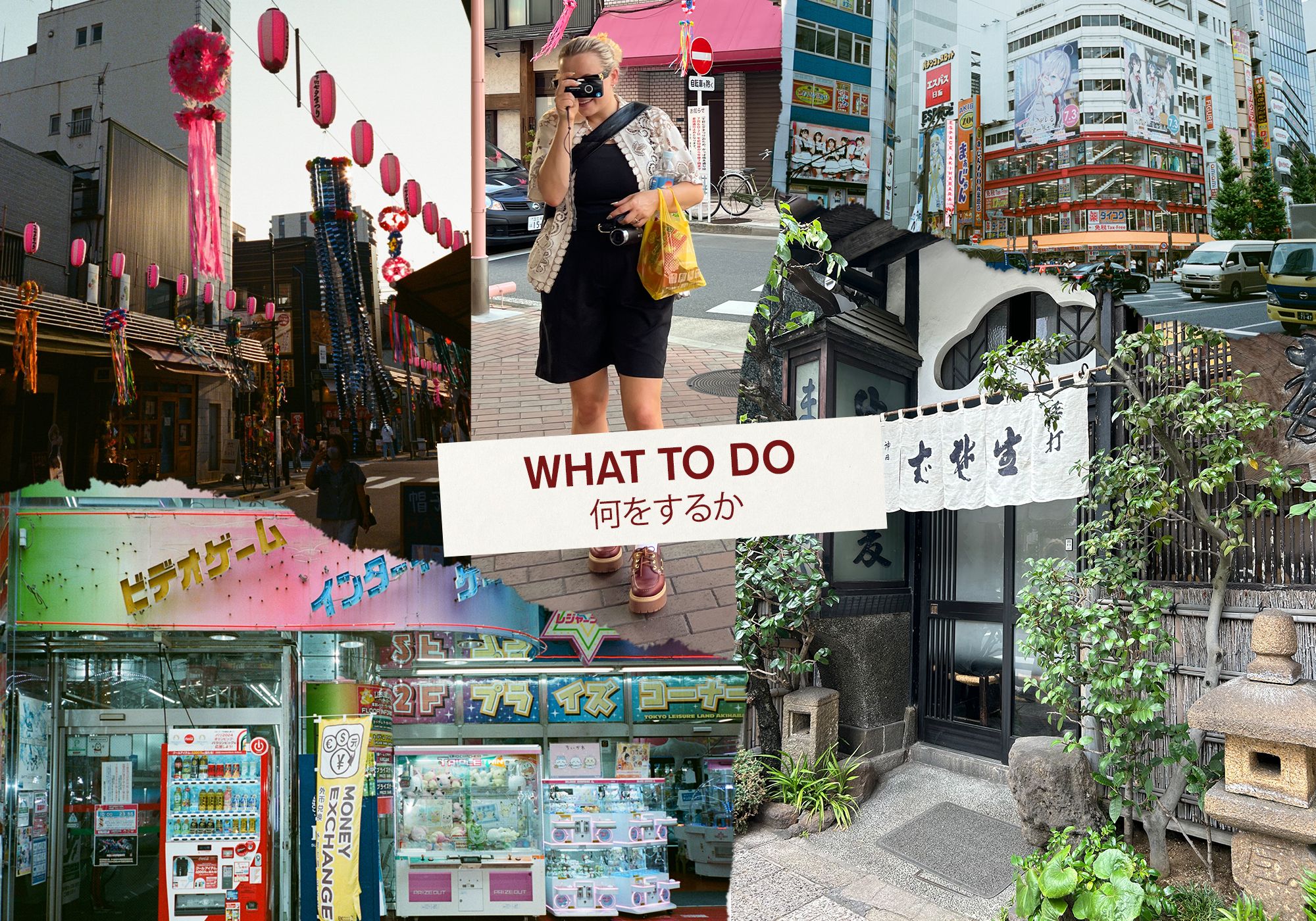
Where to begin! There’s so much to discover, I recommend making a clear plan each morning so you hit your top spots. Even if you’re not a huge shopper, I recommend meandering through the neighbourhoods on the aforementioned ‘Where to Shop’ list as they’re probably the city’s most vibey areas (I also highly suggest you make time for Roppongi, Kamiyamacho and Kimchijoji, if wandering around local neighbourhoods is your thing).
Whilst the crowds at the Sensō-ji temple in Asakusa can be overwhelming, it’s worth the trip just for the nearby Kappabashi, or ‘kitchen town’ as it’s affectionately known. This is where many Japanese chefs buy their culinary equipment, there are a few eateries and stores, but it’s so pretty, decorated with garlands and bunting, it’s worth the journey for the photograph alone.
After that, you should check out Akihabara—Tokyo’s gaming and electrical district. I’m not a gamer or particularly interesting in comics, manga and the like, but hanging out here was so much fun. Think stores upon stores of games arcades, sex shops and retro electrical stores that sell 90s VHS and Nintendo consoles.
Tokyo has so many great galleries and museums, not to mention the Studio Ghibli Museum (which unsurprisingly you need to book in advance). The gallery that many flock to, that you’ve no doubt seen on your Instagram feeds is is teamLab, but I recommend 21 21 Design Sight, the brainchild of Japanese design legend Issey Miyake and renowned architect Tadao Ando.
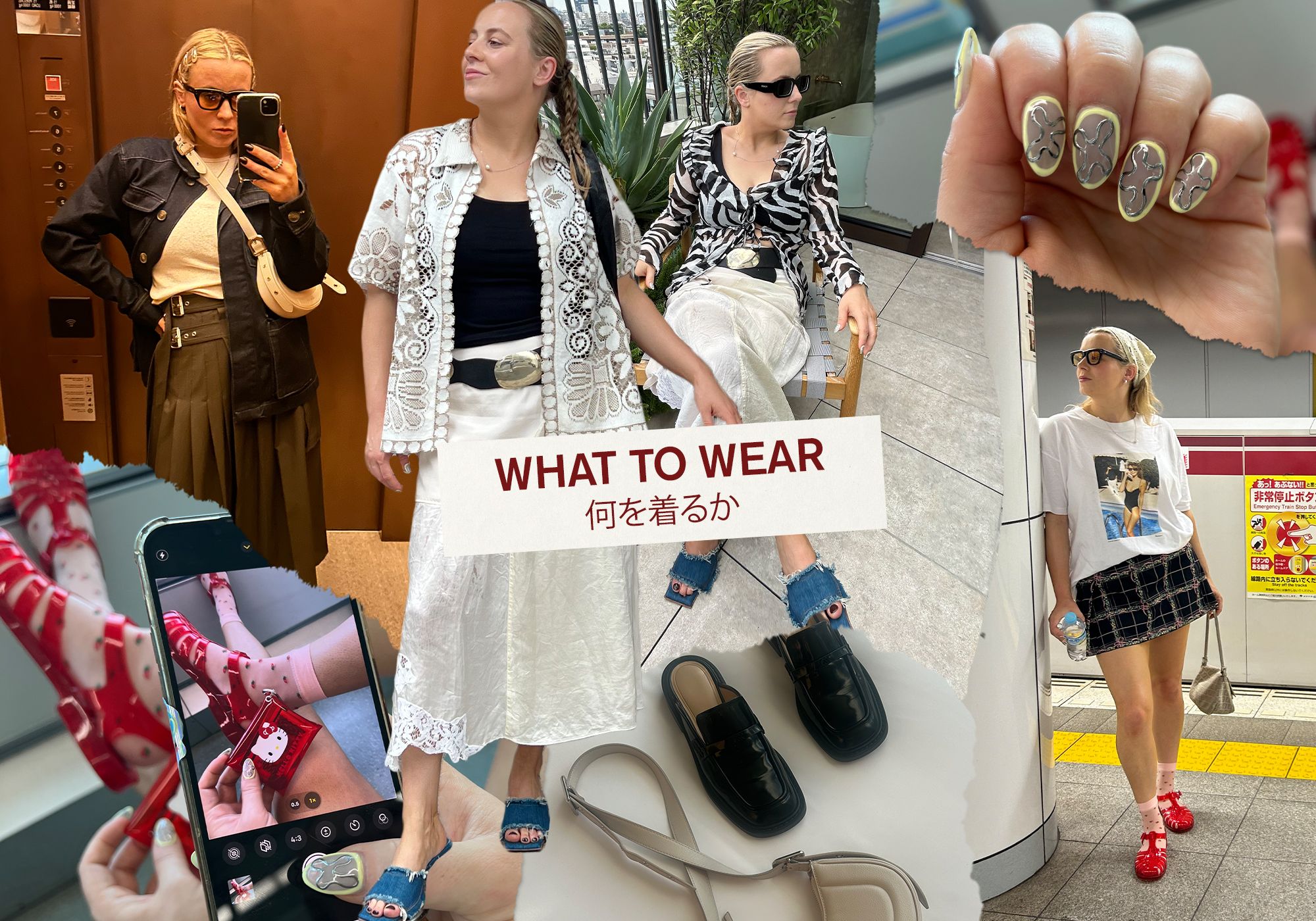
My biggest takeaway from my trips to Tokyo is that there’s a real opportunity for self-expression and creativity with the way you dress. Whilst many conform to the very well put-together, demure outfits, there’s no place on earth where outlandish alternative dressing is appreciated more. So, whether your style is more streetwear focussed, pared-back and minimalist or eccentric and extraverted—this is your opportunity to go all out with the ‘fits. Because you should expect to be on your feet a lot, ‘sensible’ footwear is essential. By this I mean comfortable, take it from someone who rocked Jelly’s and Hello Kitty socks most days, there’s no pressure to blend in. One more thing to mention is Japanese nail art—yes, they love it! So be sure to plan your manicure as much as your packing essentials!
FOR SUMMER
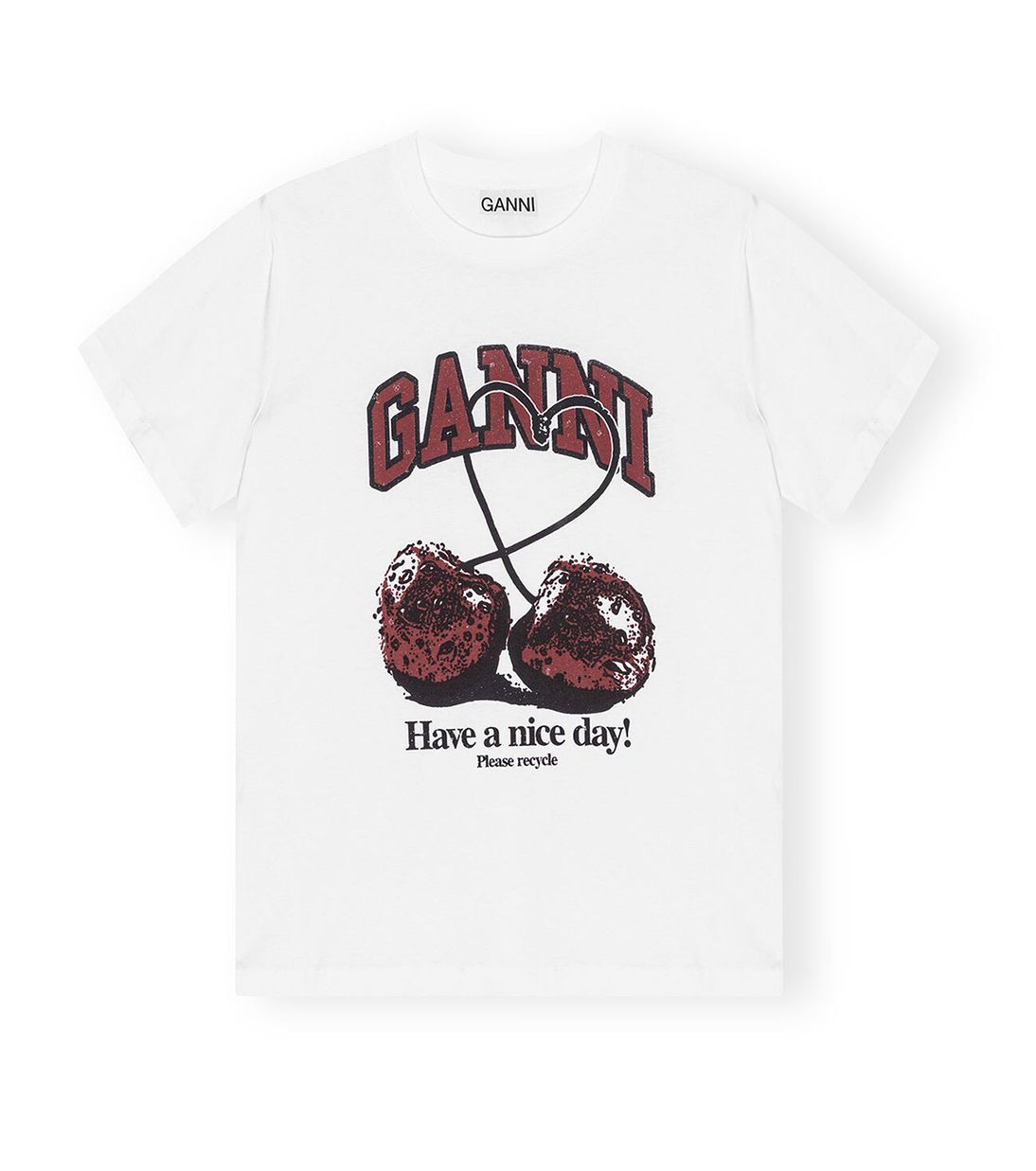
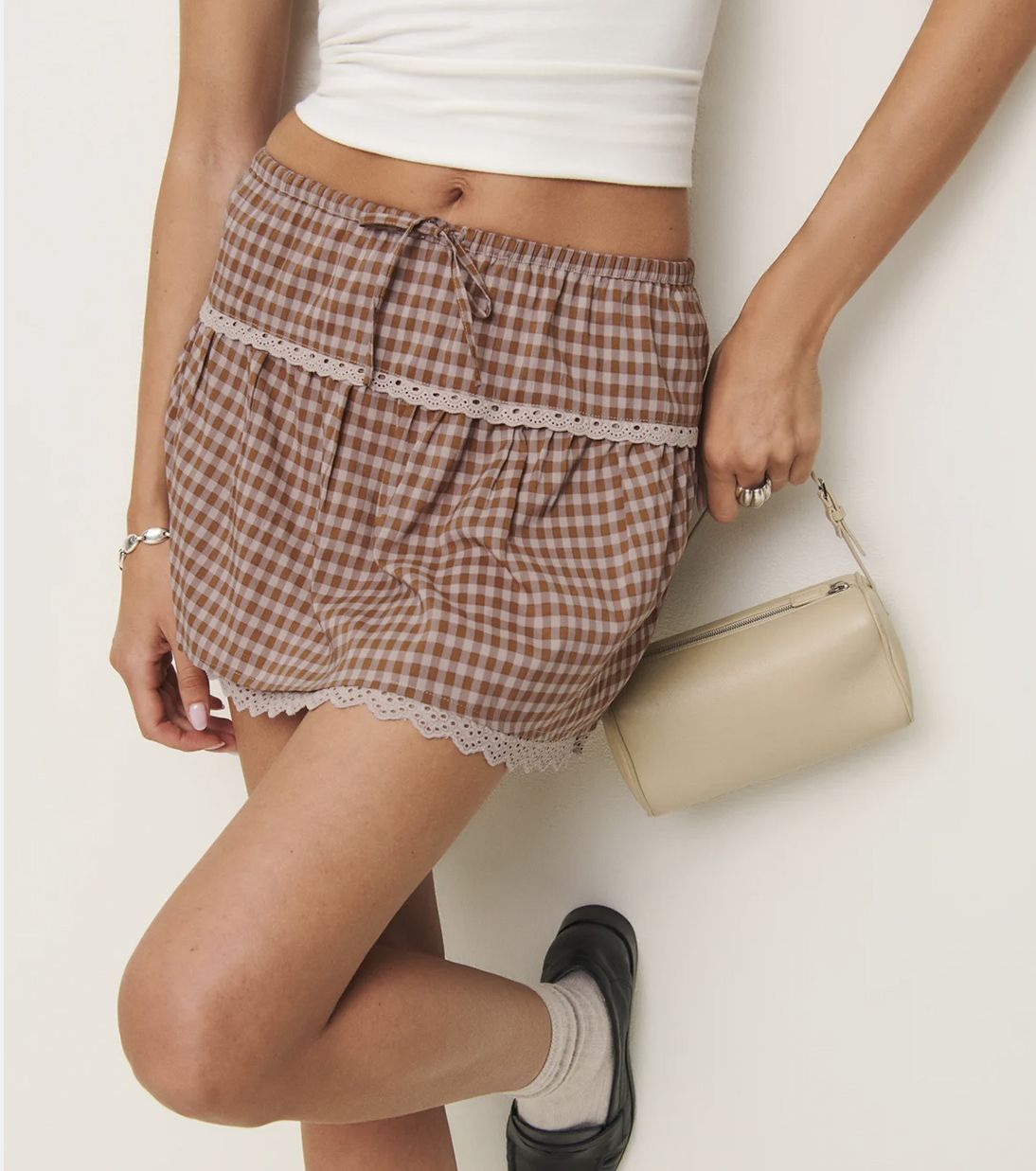
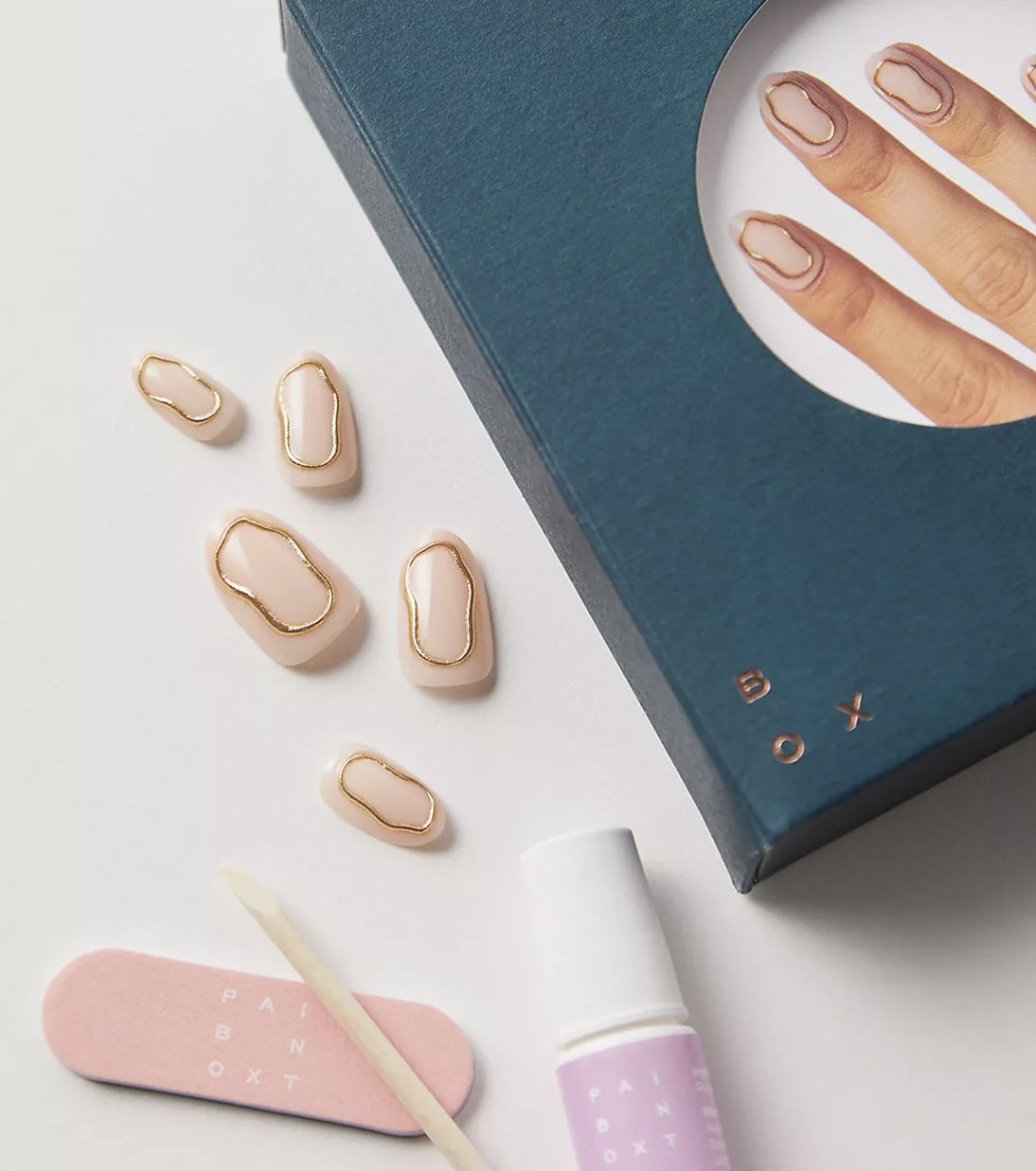
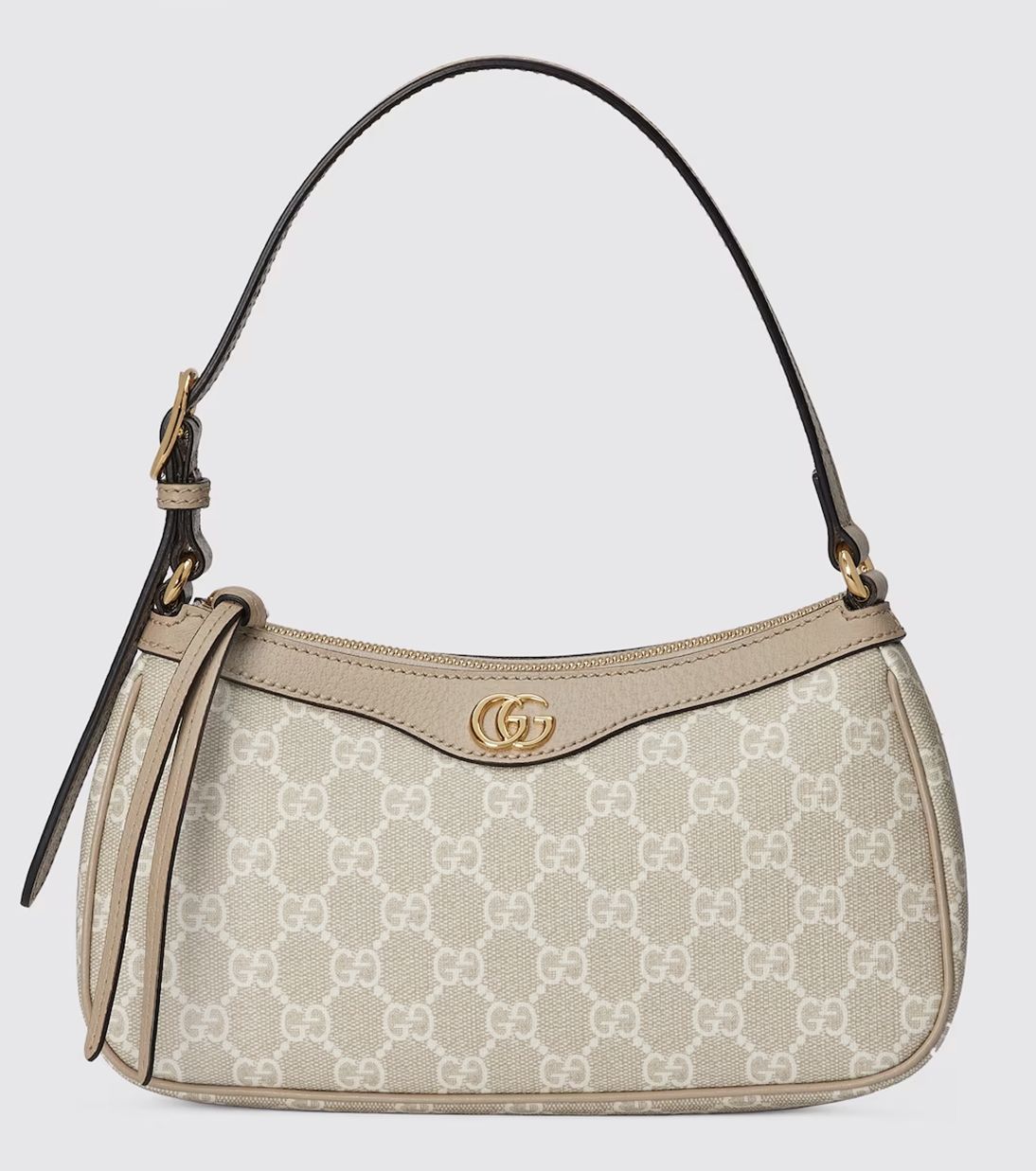
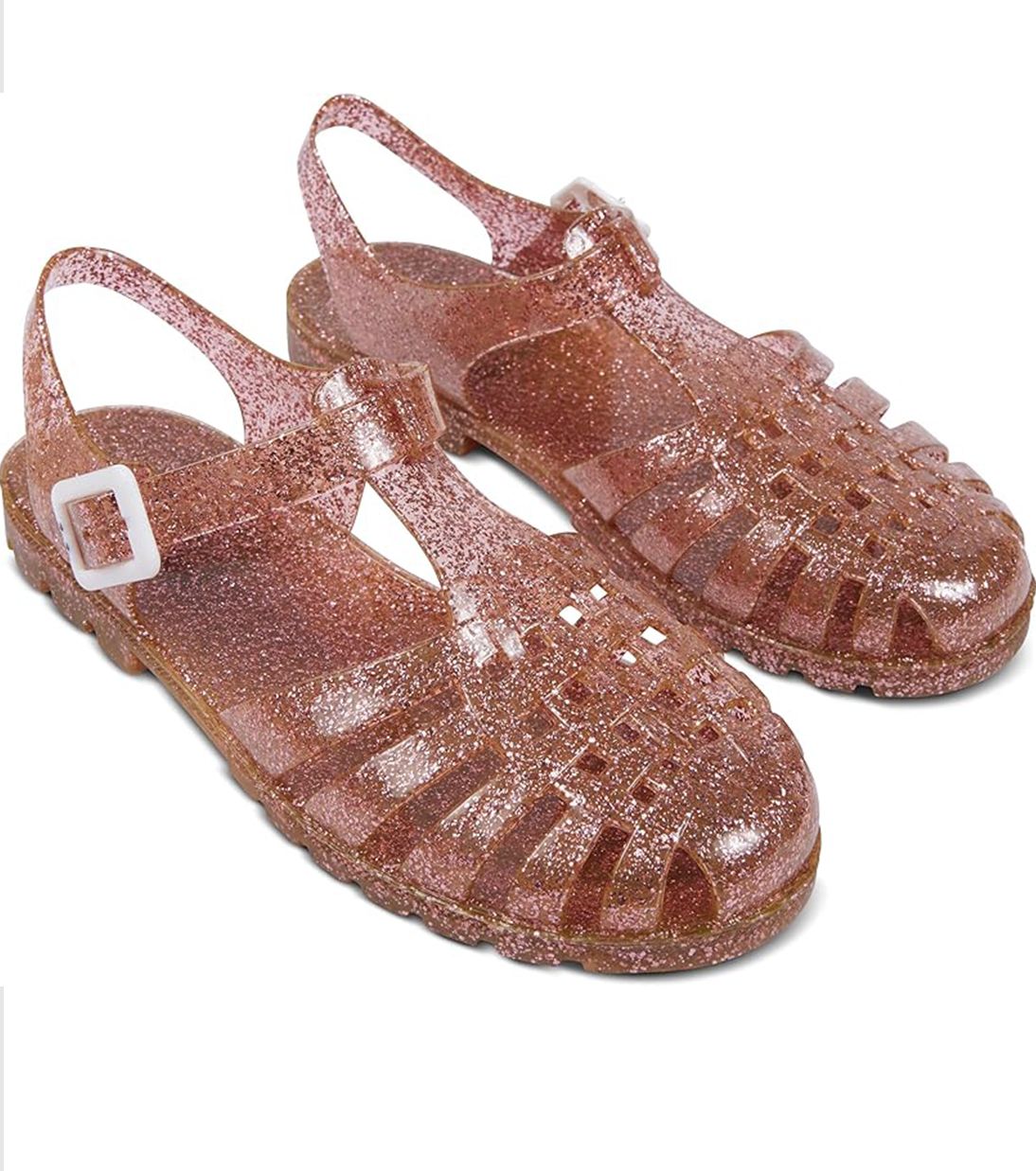
JUJU
Rose Glitter Jelly Shoes
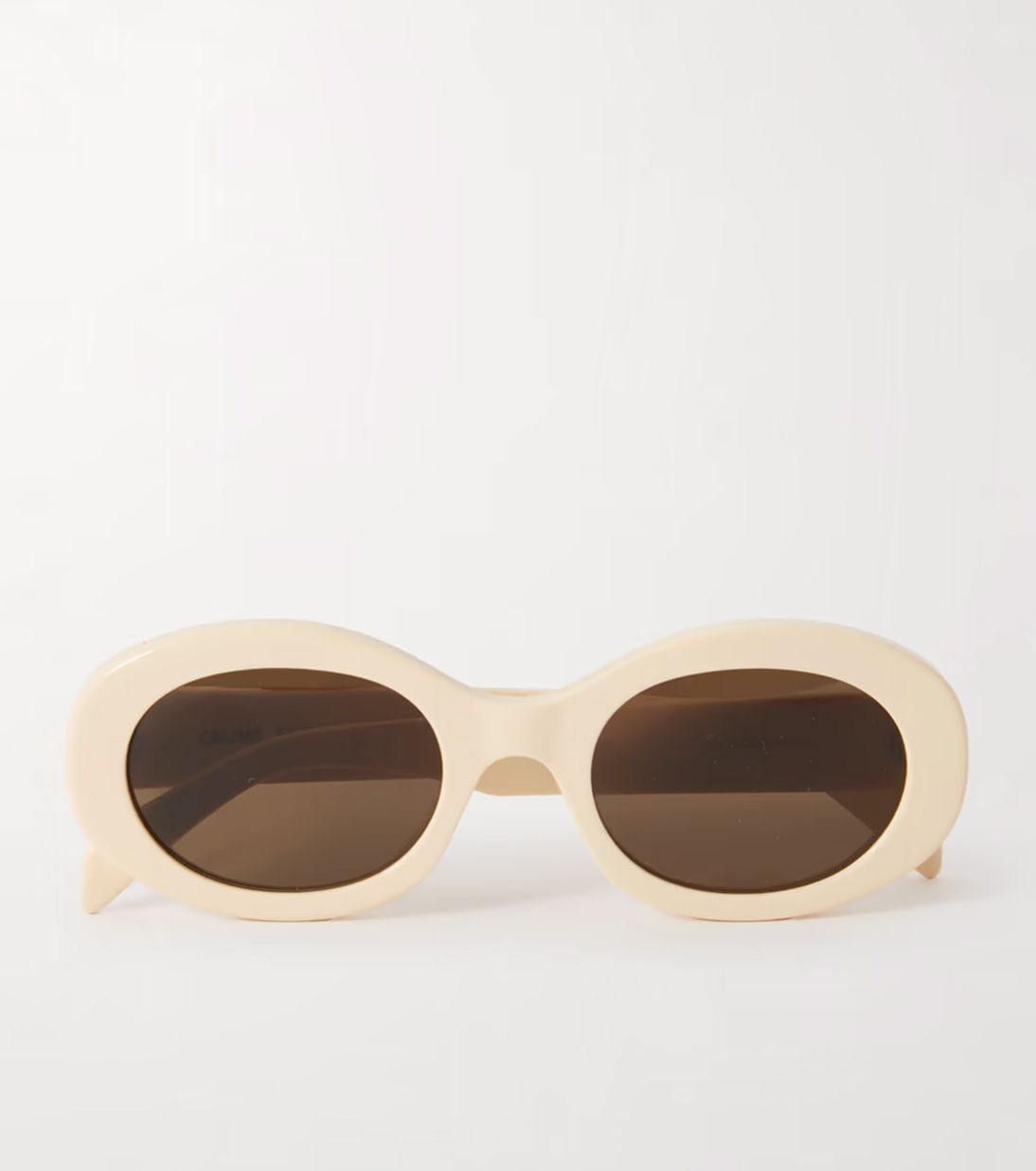
CELINE EYEWEAR
Triomphe Sunglasses
FOR WINTER
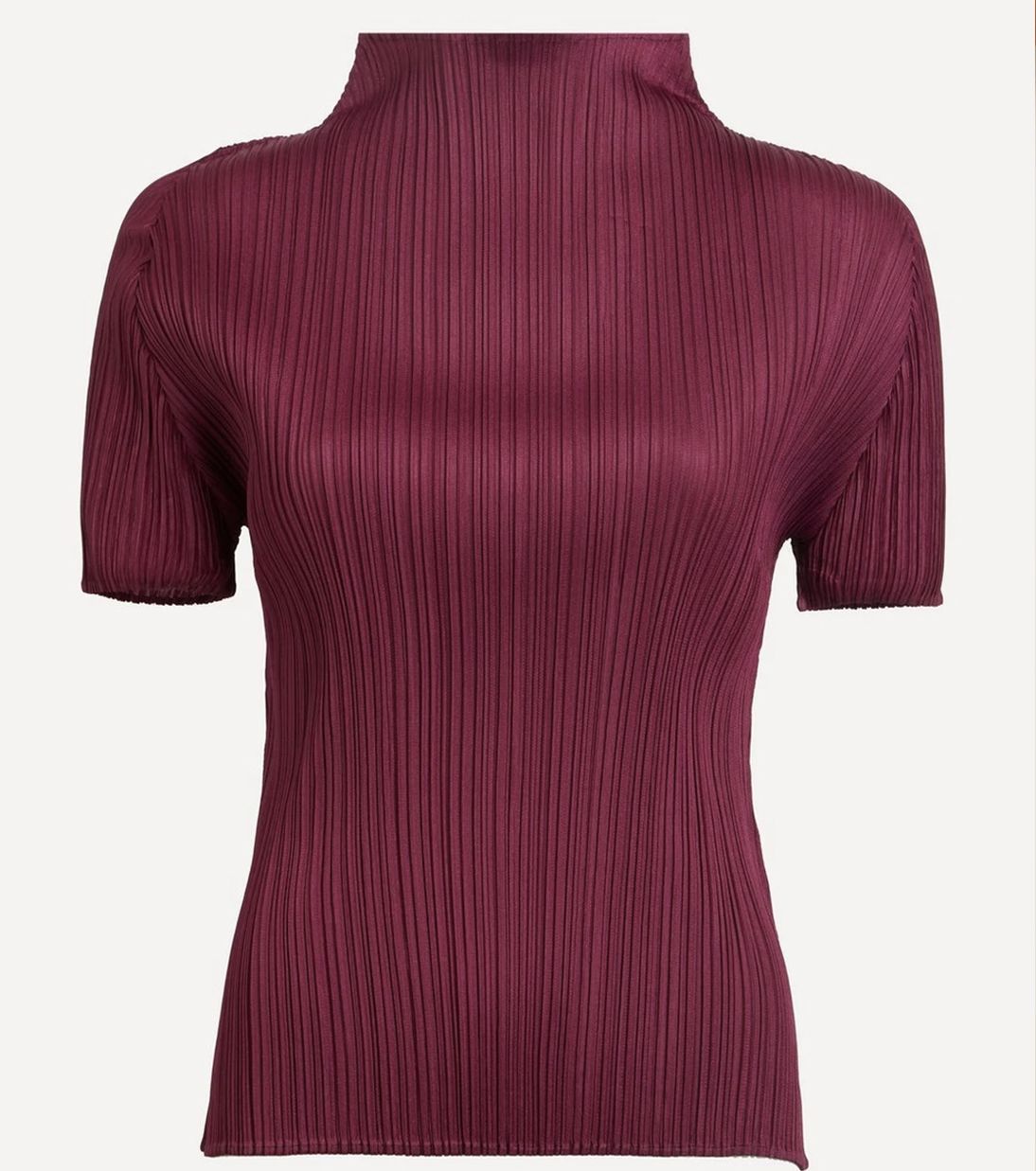
Issey Miyake
Pleats Please Top
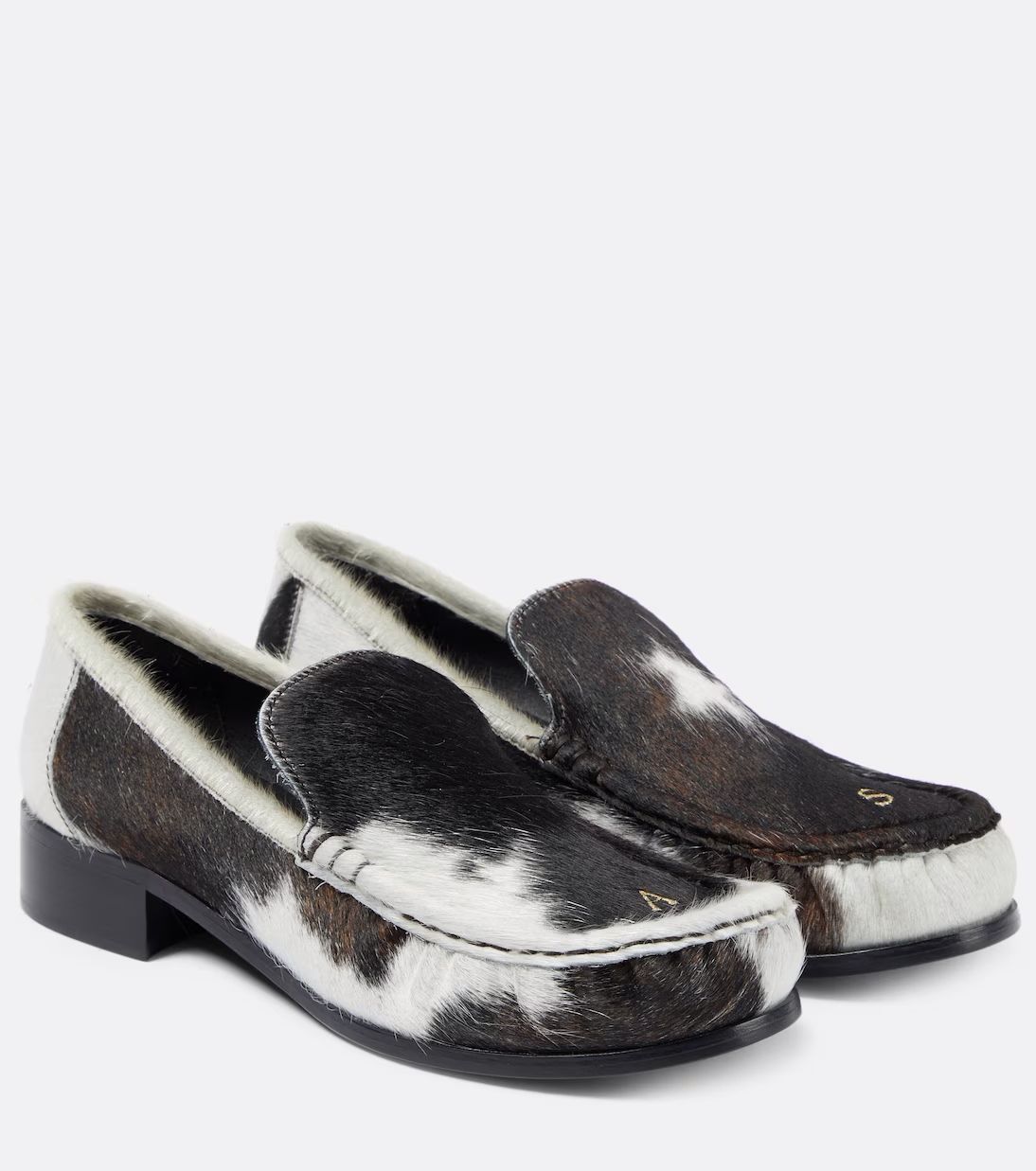
Acne Studios
Calf Hair Loafers
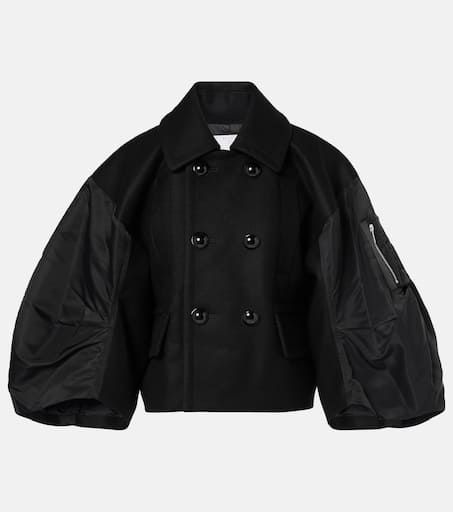
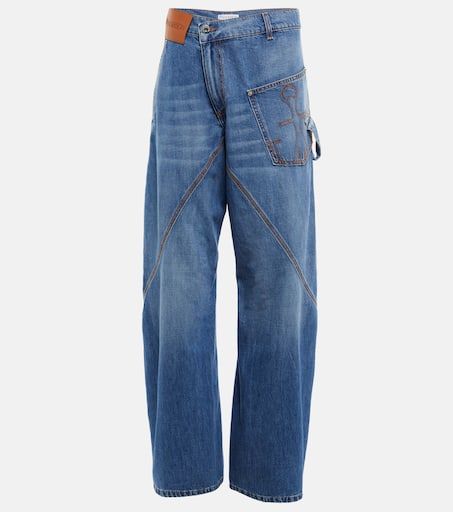
JW Anderson
Twisted Jeans
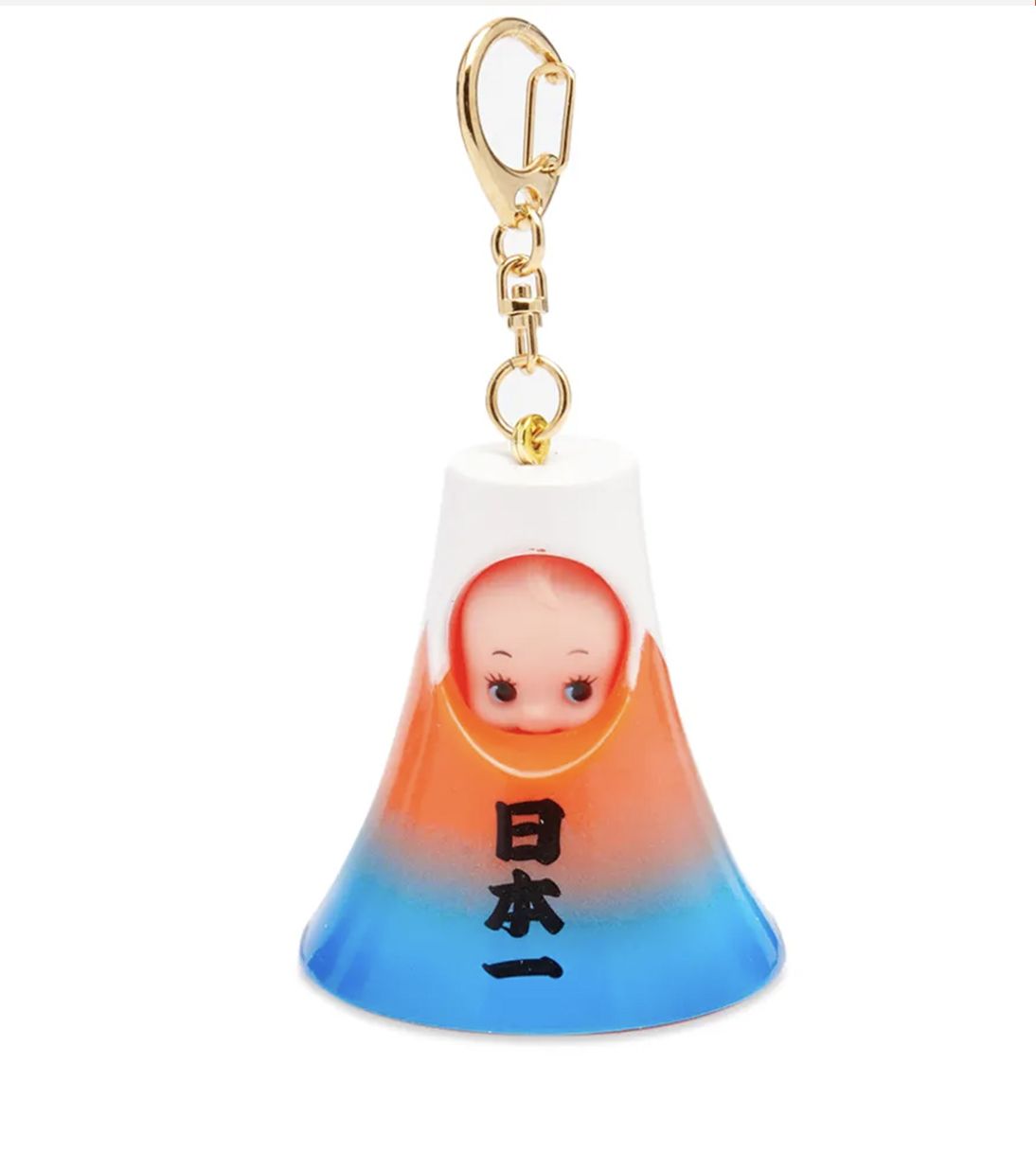
BEAMS JAPAN
Doll Key Chain
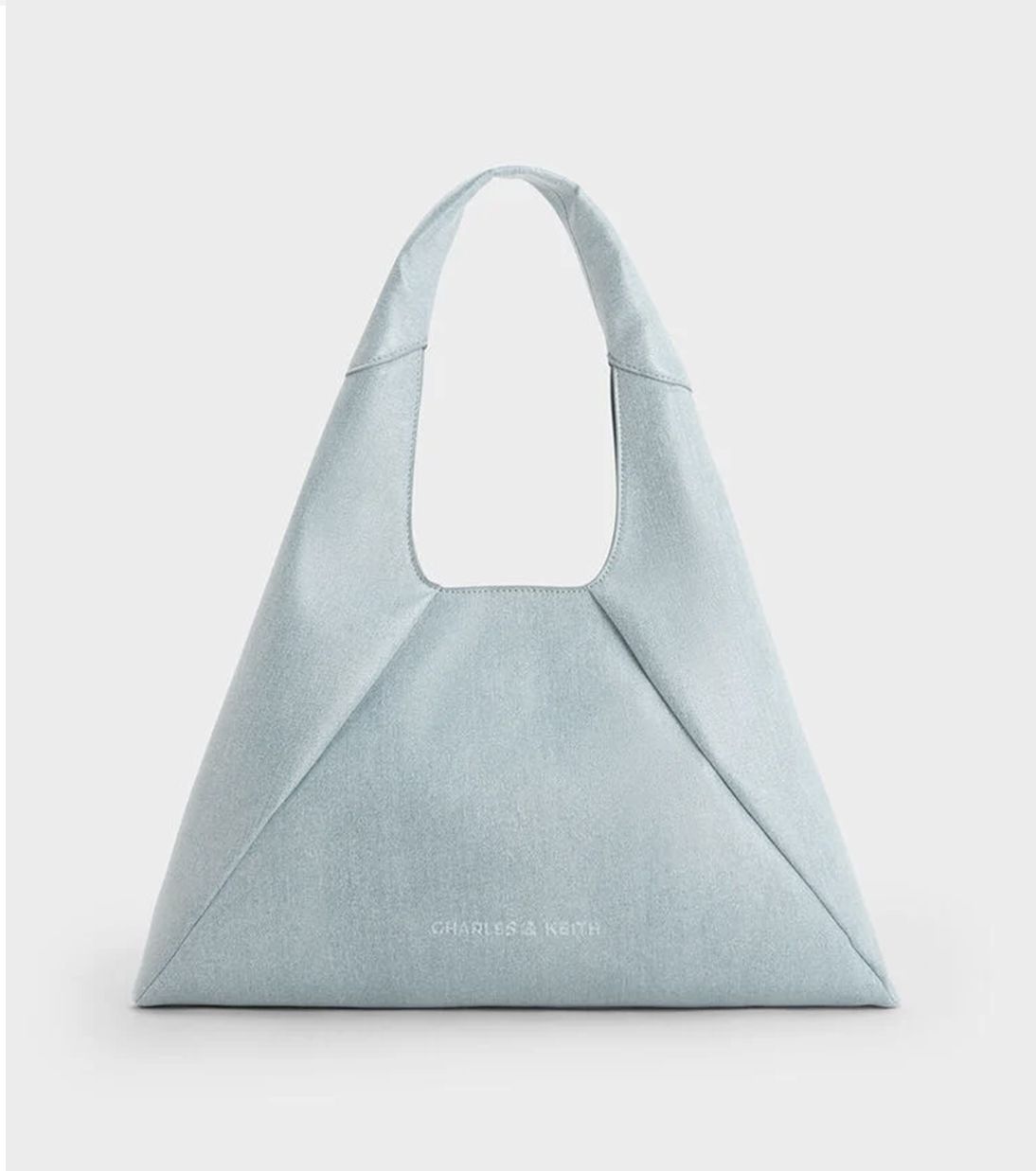
Charles & Keith
Bosie Denim Bag
PACKING ESSENTIALS
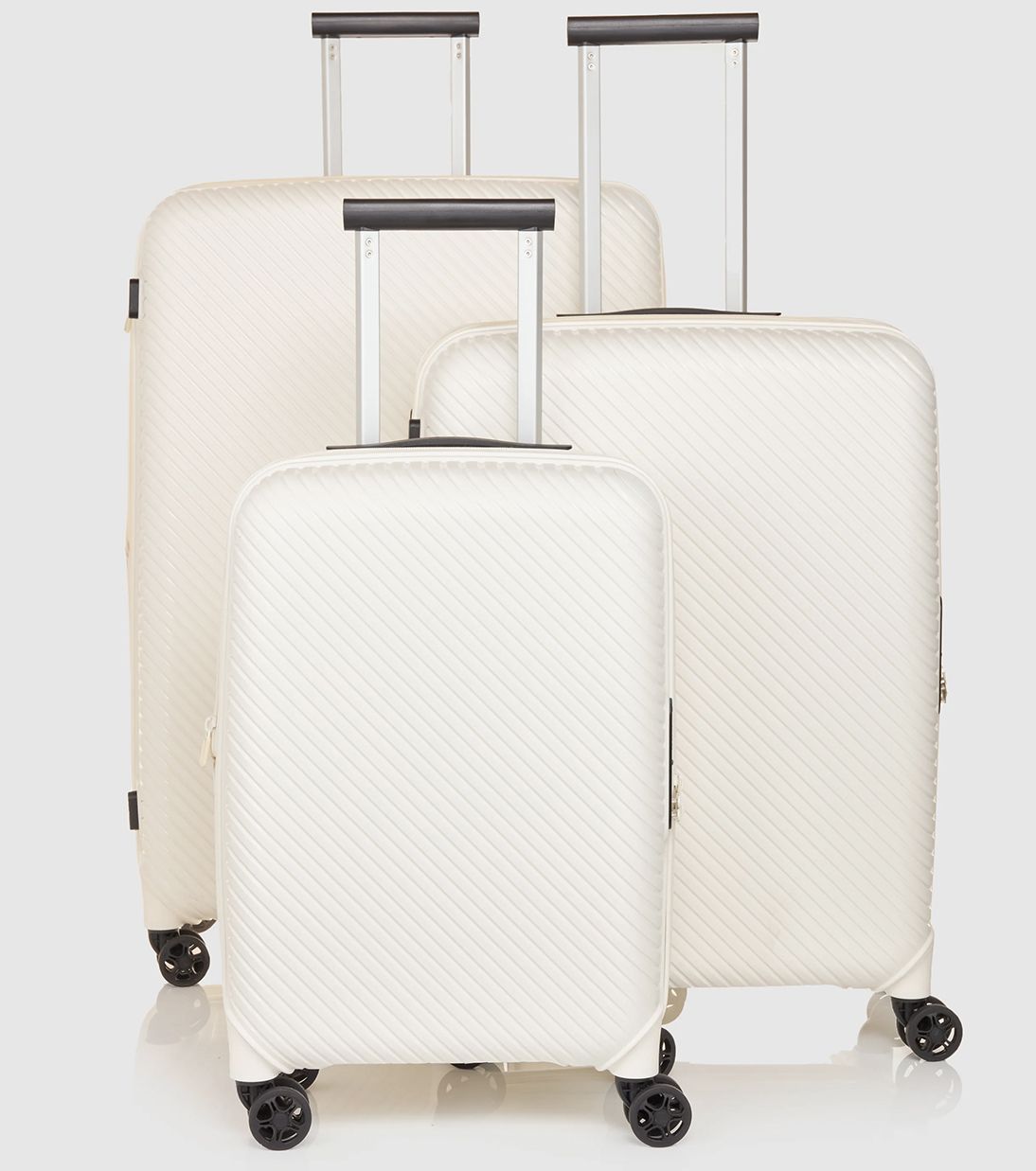

Vuori Clothing
Oversized Hoodie
